Thank you for helping to
Keep the conversation going
Here are some ways we can help you.
We hope you enjoyed The Castle Conference: Digital Wellbeing for Young People.
We know you want to keep the conversation going so we have created a page to help you do that.
The page will be updated with slides and videos when they are available.
Watch the Castle Conference Catch Up
We hope that The Castle Conference inspired you, got you thinking and talking about the topic of Digital Wellbeing. We really hope you have been talking about the conference to your friends, family and colleagues.
We certainly are and we arranged it!
The Castle Conference Catch-Up was a chance to keep talking, a chance to share your thoughts, a chance to find out what questions we have been asked since the day and a chance to ask us new questions.
Andy & Lucy
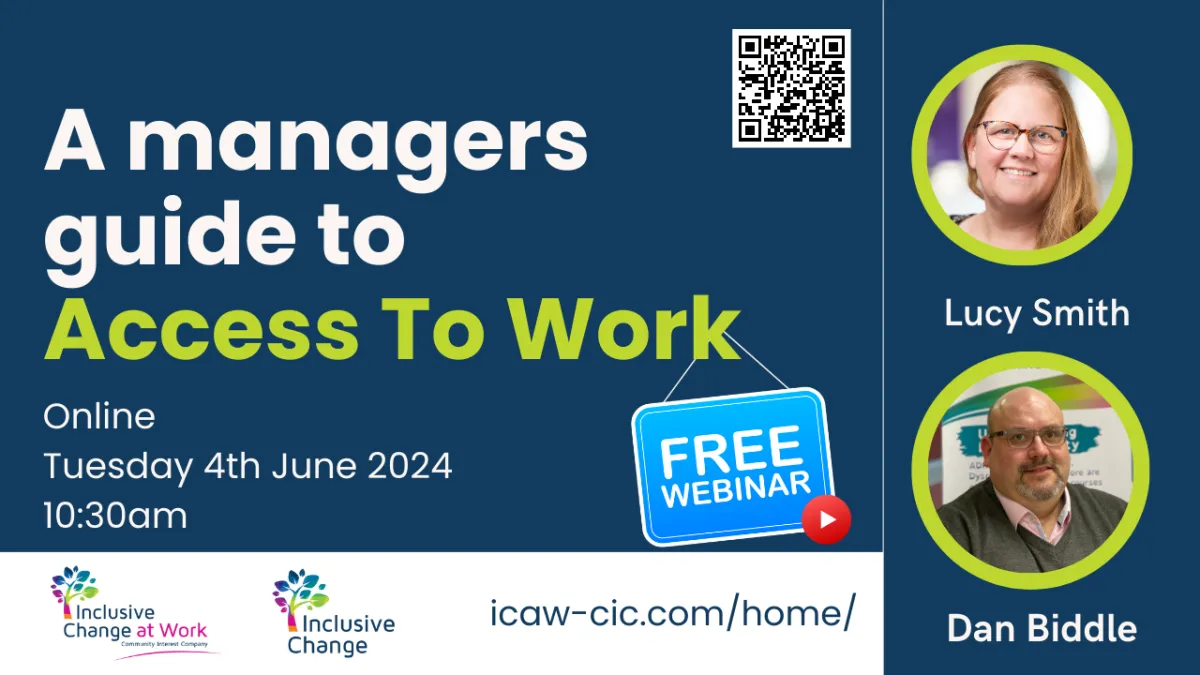
4th June 2024
Free Webinar
Join Lucy & Dan from Inclusive Change At Work CIC who will be discussing how to support disabled and neurodivergent employees to thrive at work.
Recap from the event
We have combined the slides into a video for you to rewatch
This is only the slides - no audio. Videos will be uploaded soon.
Speaker Videos
We will be uploading videos from The Castle Conference as soon as they are available.
COMING SOON!
Resources
Links and downloads for you

ADHD and Me
What is ADHD, and why is it still misunderstood in the workplace?
I am going to confess something to you all. I really don’t like the name Attention Deficit Hyperactivity Disorder (ADHD). That four letter abbreviation, even less so!

Why, you ask? Well, because, earlier this year, after a 4 year journey, I was diagnosed with ADHD (combined type). As many critics, coaches and therapists alike have identified, what I have is NOT a deficit of attention at all. I would argue, in fact, that I have unbound attention awareness! The issue is that my brain cannot focus my attention; rather, it looks for focus in all different places at once, with an inability to regulate where I direct my focus.
Attention Deficit Hyperactivity Disorder is a neurotype that’s caused by a physiological difference in the structure of the brain. It’s theorised by experts in the field (such as Dr Russell Barkley, a leading global researcher and former professor in Psychology and Neurology at the University of Massachusetts), that ADHD is a developmental condition which begins to present itself in early childhood, with the symptoms varying from person to person. There are three presentations of ADHD in the DSM V (the Diagnostic and Statistical Manual of Mental Health Disorders); Hyperactive, Inattentive, and Combined ADHD. This essentially means that ADHD symptoms can look completely different in everyone!

As a society, ADHD has become associated purely with ‘distractibility, forgetfulness, and laziness.’ Because of this perception, we’re continually seeing our community being let down, as they’re not getting the support they need. According to new research from Birkbeck, University of London's Research Centre for Neurodiversity at Work, 990 neurodivergent participants were interviewed across 127 employers. Of those people, 69% didn’t access reasonable adjustments due to a lack of self disclosure, and 65% of ADHDers worried about workplace discrimination after disclosing. Even more disappointingly, according to the CIPD as of 2023, less than 1 in 4 DE&I (Diversity, Equality and Inclusion) policies UK wide focus on neurodiversity, and therefore support for those colleagues.
So, what can we do to change this?
Well, change is hard to implement, as we can’t cause a tidal wave without rain drops, and we need enough rain drops to get the waves going. In other words, we can start by looking at small changes we can implement. What small changes can we make to have the most meaningful impact?
The first thing is education. Discrimination, in our experience, is never committed with malicious intent, but through misunderstanding, the wrong information, or not enough resources to explain otherwise.

Neurodiversity is NOT a mental health condition; it is a physiological difference in the brain, and should be treated as such, legally and morally. In the same spirit, ADHD is not just someone being ‘forgetful’ or ‘lazy,’ or ‘distracted’ or ‘talkative.’ For example, did you know that the prefrontal cortex, the area of the brain responsible for executive function, doesn’t fully develop until the age of 35 on average in ADHD brains? This can result in as much as a 30% processing delay for us, and is linked to co-occuring conditions such as Sensory Processing Disorder, Dyslexia and Dyscalculia.
The second thing we can do is understand reasonable adjustments. Under the Equality Act 2010, ADHD is classed as a Disability, and this means that legally, employers have an obligation to make adjustments for their employees. This can look like flexible working hours, working from home options, one to one support, and a private desk/office space for them to minimise distractions. Additionally, ADHDers are eligible for funding through Access to Work, a government grant where up to £69,260* is available for individuals with a disability, either currently in, or about to start, work in the UK.

The third and final thing we would suggest is challenge the perception of ADHD at work. The most meaningful thing that has ever happened to me was having a manager who, seeing my RSD kicking in, gently steered me away from our office, and sat with me to have a catch up, with context beforehand, to check and see if I was OK. Because they understood ADHD, they worked with me to put support in place that could help me. They didn’t shame me, or ask me to ‘try harder’ to burn myself out. They saw me, heard me, and helped me.

That change in perception not only helped me personally, but will help fellow neurodivergent employees coming into the workplace. Far from the ableist idea that someone is ‘doing our job for us,’ this kind of support is empowering, and will increase the longevity of ADHDers in work. I didn’t know, for example, that I could get a Virtual Assistant to help manage my inbox. I didn’t know that ADHD workplace coaching is available through Access To Work, at no cost to my employer. I didn’t know that I could get a sit and stand desk, so I can stim without shame or discomfort.
The reality of having ADHD means that we will always struggle with certain aspects of work, or our jobs, but that doesn’t mean that we’re bad at what we do. Statistically, we’ve been subjected to a lifetime of being told that we’re not doing a good enough job due to things outside of our control, which can impact our self esteem in both work and our social lives.
The most effective thing you can do for us as employers is give us time and space to be listened to. Workwise, our top strengths are our creativity, our problem solving skills, our social buoyancy, our enthusiasm and empathy for others. Having diversity of thought both in and out of work is only ever a good thing!
Want to learn more about ADHD at work? Book a training session for your business here: https://inclusivechange.co.uk/courses-for-organisations#row-UODqoKGj9c2
* This figure is correct as of 16th May 2024, https://www.gov.uk/government/publications/access-to-work-factsheet/access-to-work-factsheet-for-customers
Sources:
Access to Work https://www.gov.uk/government/publications/access-to-work-factsheet/access-to-work-factsheet-for-customers
Augmentive.io, https://augmentive.io/blog/workplace-adhd-statistics-uk
The British Psychological Association, https://www.bps.org.uk/psychologist/neurodivergent-employees-have-lot-offer-want-be-heard-and-valued
CIPD 2023, https://www.cipd.org/uk/knowledge/factsheets/diversity-factsheet/
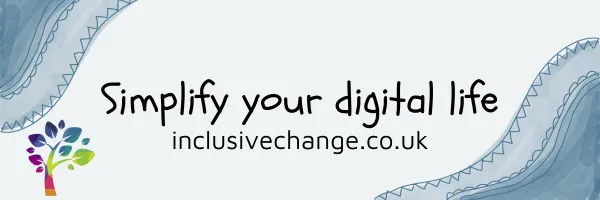
Get Your FREE eBook
A Practical guide to Simplify your Digital Life
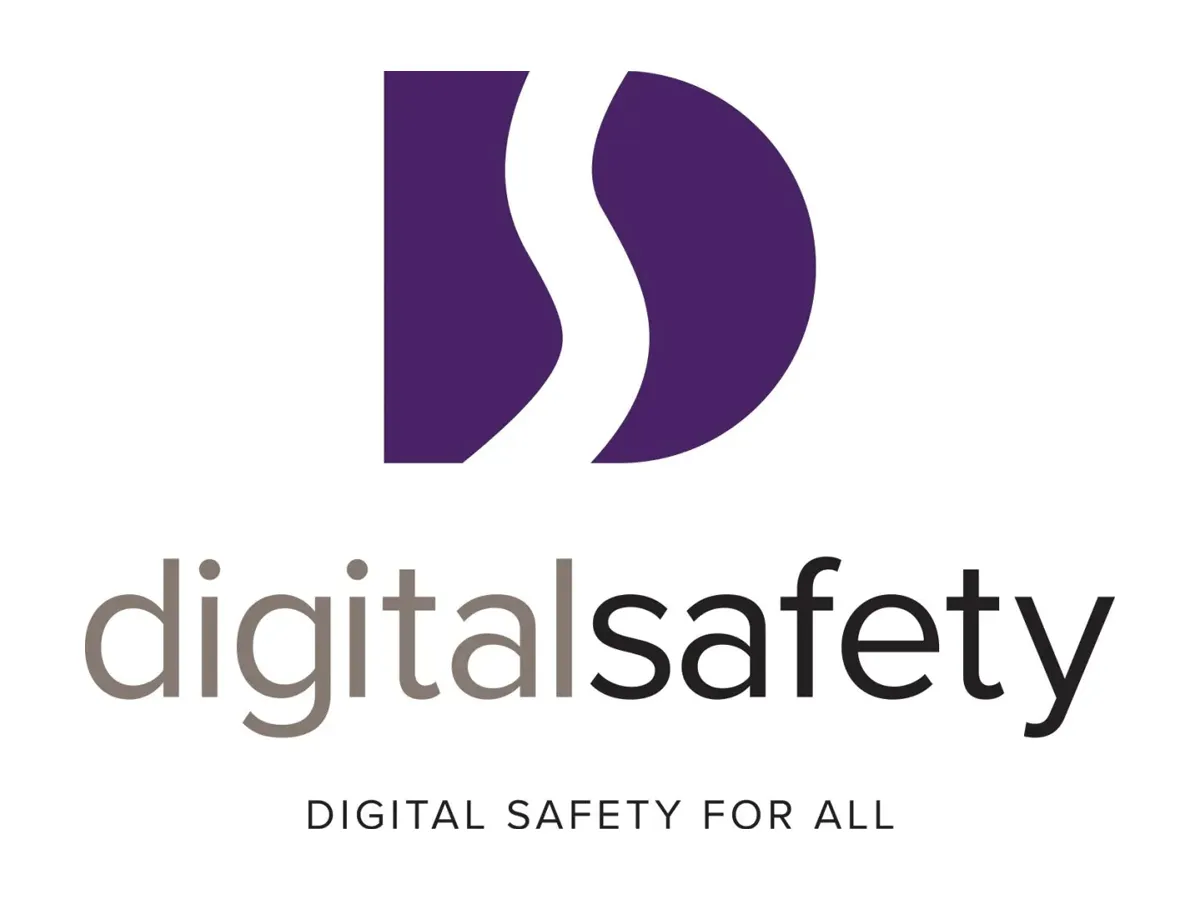
Digital Safety CIC - Online Resources
Exhibitor Information
We think you will agree that our exhibitors contributed so much to the event.
We know that we can tackle the problems we face alone - which is why we love working with others.
Thank you - you made the day INCREDIBLE!
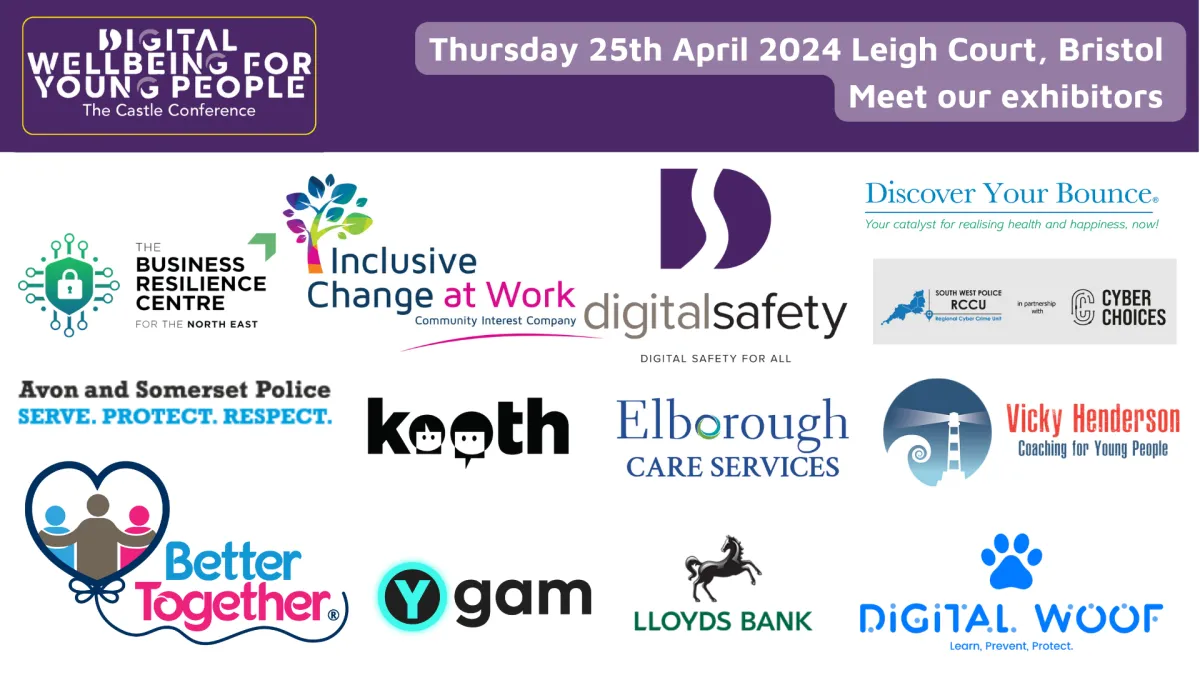
Inclusive Change At Work CiC
Bradbury House
Wheatfield Road
Bradley Stoke
Bristol
BS32 9DB
Companies House: 13271923
ICO registration: ZZB293922
UK register of Learning providers
UKRLP: 10090653
Privacy Policy | Terms and Conditions
Copyright © 2024 Inclusive Change At Work CiC | All Rights Reserved
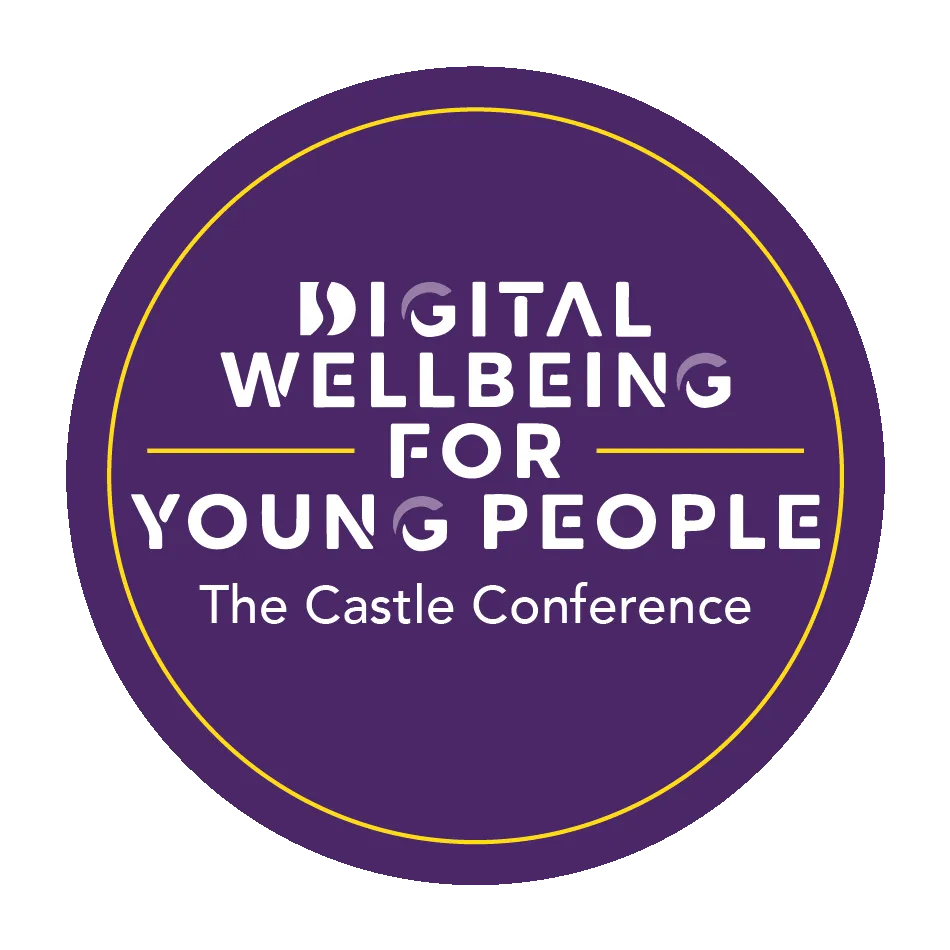
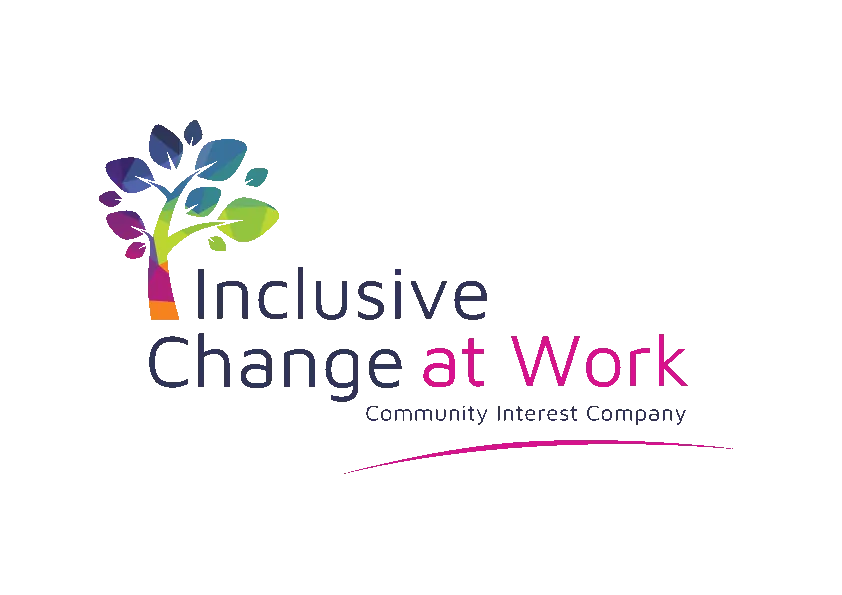


LinkedIn